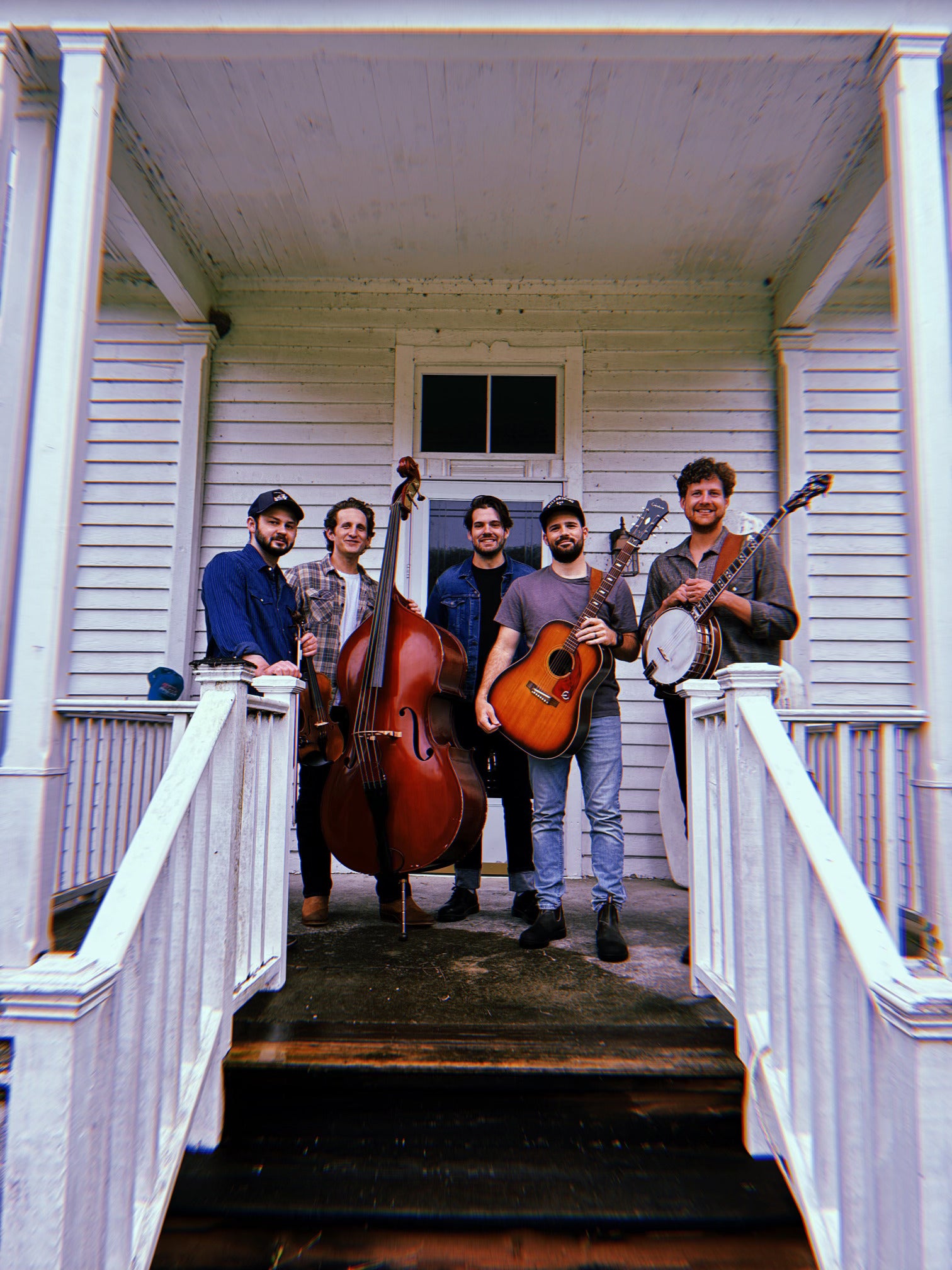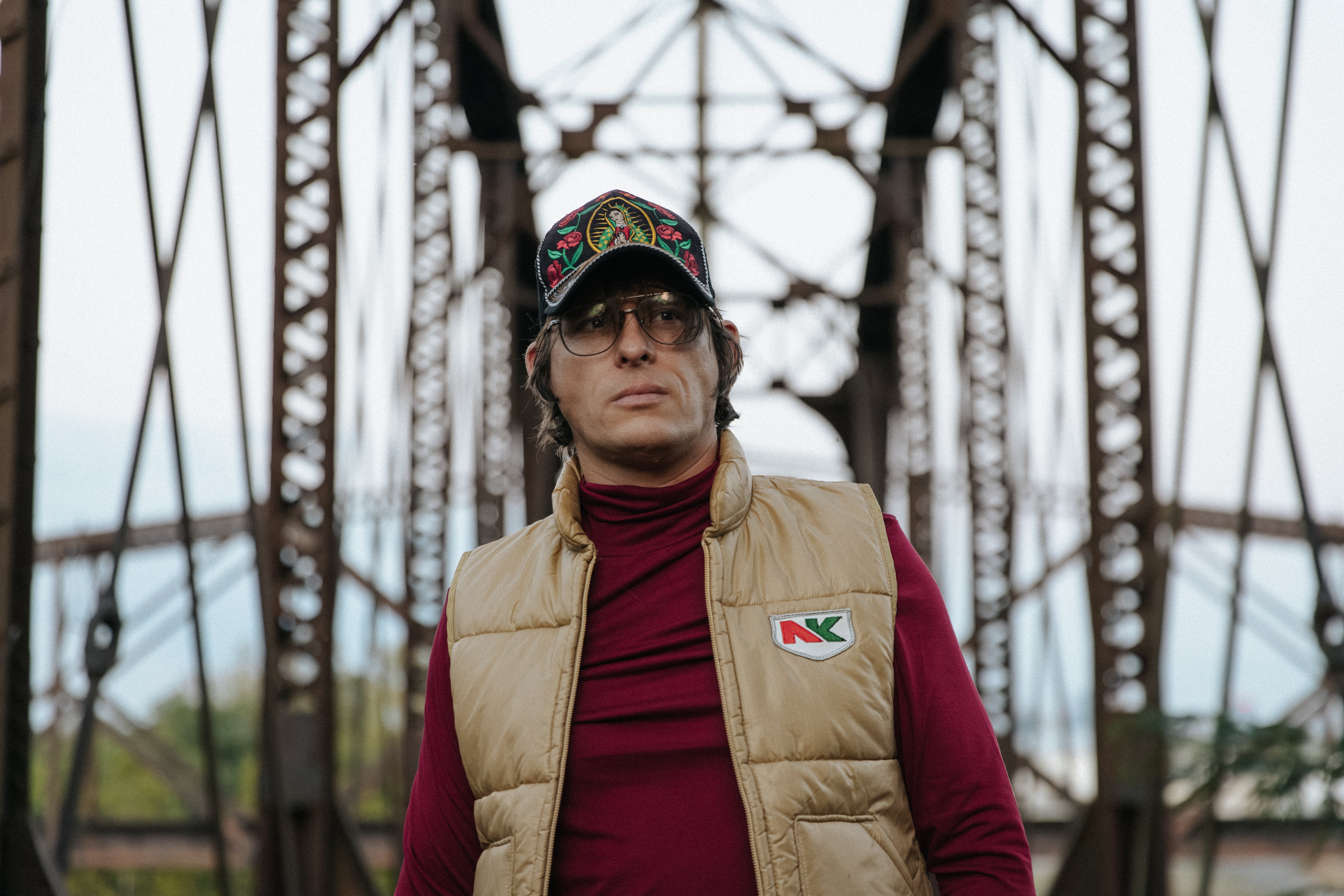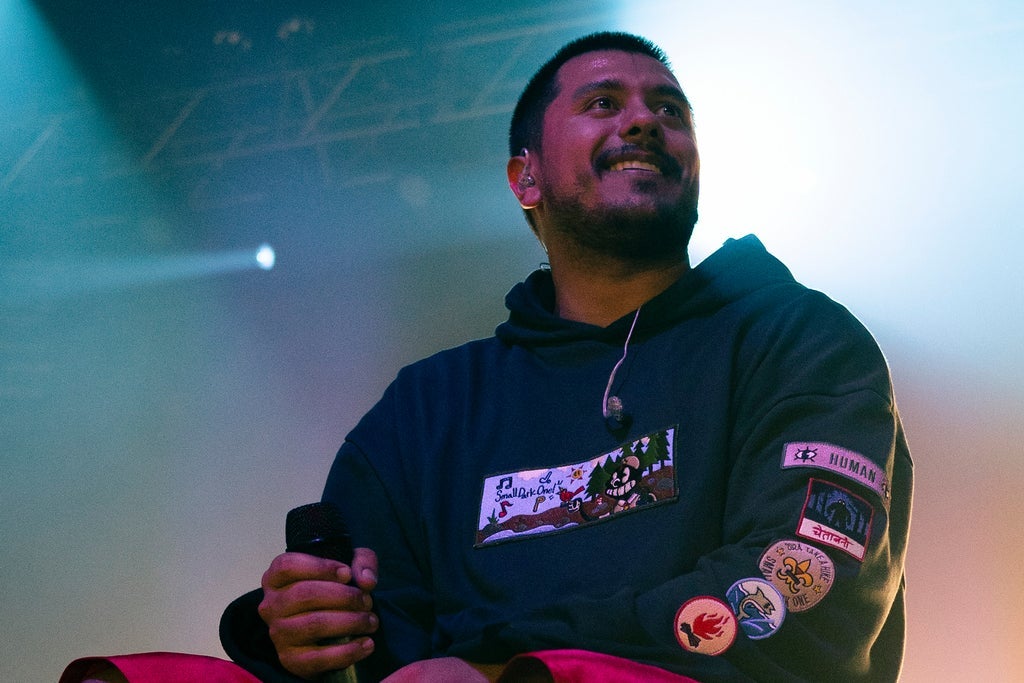Boy Named Banjo
Stephen Wilson Jr., Ryan Sobb and the Dead Mall

Event Info
Brooklyn Bowl Nashville
925 3rd Avenue North
Nashville, Tennessee 37201
This event is 18+, unless accompanied by a parent or legal guardian. Valid government-issued photo ID is required for entry. No refunds will be issued for failure to produce proper identification.
There are no COVID-19 vaccination or test requirements for this event. An inherent risk of exposure to COVID-19 exists in any public place where people are present. By visiting our establishment, you voluntarily assume all risks related to the exposure to or spreading of COVID-19.
This ticket is valid for standing room only, general admission. ADA accommodations are available day of show.
All support acts are subject to change without notice.
Any change in showtimes, COVID-19 protocols, and other important information will be relayed to ticket-buyers via email.
Want to have the total VIP experience? Upgrade your ticket today by reserving a bowling lane or VIP Box by reaching out to nashvilleevents@brooklynbowl.com
ALL SALES ARE FINAL
Choice of General Admission or Club-Level Tickets
Meet & Greet with Boy Named Banjo
Exclusive Access to Soundcheck + Acoustic Performance
Early Access to Shop Merchandise
Artist Info
Boy Named Banjo

In the decade since their stripped-down 2012 debut, The Tanglewood Sessions, brought them to Bonnaroo, Boy Named Banjo have taken Nashville and beyond by storm with a series of critically acclaimed, genre-bending releases that have earned performances everywhere from the Ryman to the Grand Ole Opry alongside dates supporting the likes of Kip Moore, Hank Williams, Jr., Old Crow Medicine Show, and the Cadillac Three.
On their latest album, Dusk, Boy Named Banjo explored the full sonic and emotional spectrum of their rich, eclectic sound, from late-night, feel-good anthems to stripped-down, introspective meditations on loneliness, loss, and letting go.
While the band explored genres and flexed their range on Dusk, they have been working on a new body of music that marks a full-circle return to their Americana and bluegrass roots. “In the ten-plus years we’ve been together, we’ve explored many different sounds,” says banjoist and vocalist Barton Davies, “but the one we keep coming back to is that folky, acoustic sound that inspired us to pick up our instruments in the first place.” The group’s new music is slated for release in 2024.
Stephen Wilson Jr.

Stephen Wilson Jr. opens every one of his performances the exact same way, by walking to the microphone and introducing himself to the crowd: “I’m Stephen Wilson Jr. — I am my father’s son.” Wilson’s entire being is defined by those words, and particularly by the two simple letters that follow his name: Jr. Like his father before him, he is a boxer, and learned discipline and self-esteem in the ring beginning at age 5. He has the same eyes as his dad too. And, most importantly, he has his name. “You don't have to put Jr. after your name. It’s an optional suffix. But it is very powerful,” Wilson says. “It carries a lot of weight in the sport of boxing, because it means you're an extension of your father. I'm an artist now, but when I see my name on a show poster, I still look at it like a fight card. My first stage wasn’t a stage at all, it was a boxing ring.” Since Sept. 15, 2018 — the day his father died after a brief illness at 59 — Wilson’s been in the fight of his life, battling grief and uncertainty to figure out how to carry on without his hero. It’s a bout tougher than any Wilson faced when competing in the Golden Gloves championships in his native Indiana, but it’s one he’s winning. The proof is in Son of Dad, his triumphant 22-song debut album on Big Loud Records. It is an album that’s impossible to pigeon-hole: It is country, it is rock, it is grunge, and it’s among the most unique records to come out of Nashville in a decade. “Writing and making this album has been very therapeutic for me to learn who I am and what my existence looks like after my father. Because life has to go on,” Wilson says. “I’m living my own life, but it’s like his death bookended what life he should have had onto mine and I'm carrying it around like a train car.” With songs like “Grief Is Only Love,” “Hang in There,” and the autobiographical centerpiece “Father’s Son,” Son of Dad is a testament to the life of Stephen Wilson Sr., who raised two sons and a daughter as a single father and auto-body mechanic. But while so much of the album is pulled from Wilson Jr.’s own experiences, it has universal appeal to anyone who has lost someone they love. “If you're lucky enough to have lived, you're going to grieve something,” Wilson says. “It is the most human thing we have and we grieve on a level that is unmatched.” But Son of Dad, co-produced by Wilson and Benjamin West, is not a downer album. Rather, it’s a cathartic and high-energy rock & roll journey, informed by Wilson’s wildly diverse background as a boxer, a believer (he was raised Nazarene), a scientist (he has a degree in microbiology and chemistry from Middle Tennessee State University), and a songwriter. Wilson first became enamored of songwriting after hearing Tim McGraw’s “Don’t Take the Girl,” a pivotal moment on the school bus. “That song made a mess of me in just four minutes,”says Wilson, who would worry relentlessly as a child about the safety of his mother. “I spent a lot of my childhood waiting to get a call that she had been badly hurt or killed. It just seemed inevitable. And even though ‘Don’t Take the Girl’ had nothing to do with my mom's situation, I was able to copy and paste her into that song. I knew then that songwriting is wizardry, but there was nothing illusionary about what that song did to me. That was as real as it can get.” When he was 16, Wilson’s father recognized his son’s inherent ability for music and bought him a cheap guitar. He quickly learned to play but cracking the songwriting code still seemed out of reach. Eventually, he left Indiana for Nashville to be close to songwriters and finish college, where he played in the indie-rock band AutoVaughn while taking contract jobs in the research & development department of a major food company. He began writing songs in the lab too. When the company offered him a well-paying, full-time position, he froze. “I had a conversation with my boss there and he said, ‘They’re about to put the golden handcuffs on you,’” Wilson says. “That metaphor scared the shit out of me.” So, he quit and gambled his future on songwriting. But the type of songs Wilson was writing weren’t in line with the good-timing party hits of the era and he struggled to make ends meet. Finally, he got a publishing deal — “This guy liked one of my weird-ass songs,” he says — and watched as Nashville stars like Brothers Osborne and Caitlyn Smith, in a collab with Old Dominion, slowly began to record his material. The very first to do so? Tim McGraw. “It was a full-circle moment,” Wilson says. “I’ll never forget the day I learned that he recorded my song ‘For What It’s Worth.’ I had to go outside and just stare at a wall for 20 minutes.” In the end, McGraw didn’t release the song, but Wilson is. His version, an irresistible declaration of love with a euphoric chorus, is a standout of Son of Dad. Like “For What It’s Worth,” “Patches” (about the scars, scratches, and holes in our lives) and “Year to Be Young 1994” (an imagery-rich slice of nostalgia) are born for radio. Other tracks on Son of Dad are more unconventional — but no less captivating. “Mighty Beast” is a blast of skronky noise inspired by Wilson’s love of Soundgarden. “Calico Creek” is a haunting war cry. And “All the Wars From Now On” is a deep-thinking ballad about conflict and aging. The disparate styles embody the many sides of Wilson, who views life from often polar-opposite perspectives. He is a man of science, but he also believes in “the devil” — he intentionally lowercases the title of that song on Son of Dad. “I grew up with a lot of apocalyptica being shoved down my throat. I saw more of the devil than I saw God,” he says. “I saw a lot of demon exorcisms and movements of the spirits, and speaking in tongues. The reason I got into science was I was trying to understand everything at its molecular level.”But even science couldn’t explain what he felt after the death of his father. Instead, he found answers in songwriting. “There is no chemical formula to help me rationalize grief,” he says. “Music was the only thing that had any ability to help me understand it.” In “Grief Is Only Love,” you can hear Wilson making peace with his loss in real time. “I miss my father every day/kind of pain I pray don’t fade away,” he howls, before offering that “grief is only love/that’s got no place to go.” The song is both spiritually based and scientific, shot through with faith and doubt. “Doubt is good for belief,” says Wilson, who while racing home to Indiana to be at his father’s bedside, had to pull over to say his final goodbye. “His last words to me were ‘Write a good song for me’ and then he said, ‘I love you’ four times. As his voice was fading, I could feel the higher power taking him. Whatever you believe, I had a real visceral experience.” A few weeks after Wilson’s father passed, he was onstage at a songwriter festival singing a show-closing cover of “Stand by Me” when he felt another strange sensation wash over him. He still considered himself only a songwriter at that point, and rarely sang in public. But at that moment, the pragmatic scientist says he felt the unmistakable presence of his father on his shoulders, “like a 3-year-old kid singing along.” He was forever changed. “That was the real confirmation that I was no longer the same person. Who I was before died with him. I was no longer just a songwriter,” Wilson says. “It was almost like a knighting of sorts. I knew then that I was the vehicle for these songs — for my dad, for myself, and for the people who need to hear them.” His hope for Son of Dad is that listeners find an outlet for their own grief and remember to live not only for those who are gone, but for themselves. He’ll do that through writing and singing songs, and by reminding everyone that he’s Stephen Wilson Jr. — his father’s son
Ryan Sobb and the Dead Mall
Raucous and boisterous, poised with lyrical clarity and intention, and sewn together with a band that could melt your face off and leave you punch drunk and stumbling wondering what the hell happened is the best description that could get you somewhere near the sound of Ryan Sobb and The Dead Mall. There are few songwriters with the wit and porch-sat wisdom that Sobb delivers. Paired with his badass rock trio The Dead Mall (Preston Cochran on bass guitar, Alex Rodriguez on drums) the band deliver a record and sound that are equal parts rowdy and reflective.
Originally hailing from Chicago by way of Birmingham, Alabama, Sobb's roots have been set in Nashville for several years now. Since then he's released a slew of singles, such as the stellar "Still Waiting" & "Right Time" as well releases from The Dead Mall like "The Real John Law of the Valley" with the help of Anthony Da Costa and their 2021 tascam venture, Carnival Shapes EP featuring the gah damn hit "Two Phones". Most recently the band released a live video in collaboration with Earthquaker Devices & Dialback Sound of their song "Two Phones" recorded back in 2021.
The Dead Mall have their debut record due out this fall. The record was produced, in part with the band, by Scottie Prudhoe (Lucy Dacus, Darrin Bradbury via Anti Records) at Trace Horse Studios in Nashville, and was mastered by Preston Cochran (Passion Fruit Boys, The Minks) . Art direction and design was put together by Maxwell Sebastian. Keep an eye out for more and check out the full album here.












